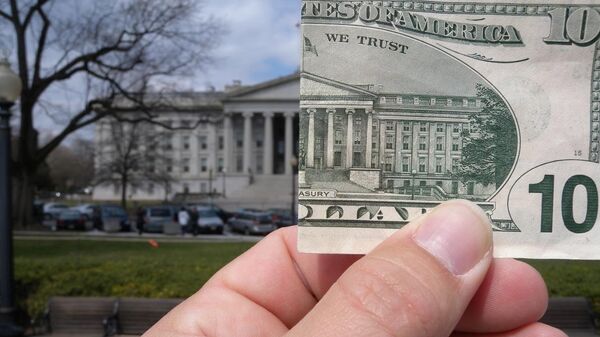Kristian Rouz — Foreign holdings of US governmental debt have shrunk in December, according to data by the US Department of the Treasury, even though it was (and still is) hardly the best moment to sell. Domestic and international private and select state (like Russia) investors are piling into Treasury notes, currently rising in value, prompting an ongoing decline of the benchmark yield. A paradox at first glance, has a simple explanation: certain governments have to sell haven assets in order to accumulate dollar-denominated money liquidity to be spent supporting national FX rates (mainland China), whilst other governments, stripped of cash due to falling external trade revenues, are selling US debt in order to meet their fiscal targets (Saudi Arabia).
"Given the volatility in foreign exchange markets in December, specifically in the Chinese renminbi (yuan), suggests that the selling was mostly related to reserve management and currency policies," Tom Simons of the New York-based investment bank Jefferies & Co noted.
The total sale of $48.11 bln worth of US governmental securities in December followed rather insignificant net purchases of $892 mln worth of such securities the previous month.
In longer-term US assets, December also saw a sell-off by foreigners of $29.4 bln in worth, with the total volume of yearly purchases for 2015 down to $320.2 bln. In November, overseas entities bought $31.4 bln of longer-term assets. In December, foreign governments sold $35.91 bln worth of Treasury notes only, after having bought some $38.36 in November.
Mainland China's stake in the US debt burden fell to $1.246 trln in December from $1.265 the previous month, while Japan's holdings decreased to $1.123 trln from $1.145 trln.
Private overseas buyers, however, acquired some $12.2 bln worth of US debt, yet, December's massive sale of US debt held by foreigners is first since 2001.
Meanwhile, according to data by Saudi Arabia Monetary Authority (SAMA), the oil-exporter's foreign exchange reserves, including its holdings of US debt, decreased by $108 bln in 2015, and the Saudi regulator owned some $423 bln in foreign securities (including US Treasuries) in November, just before the sell-off. SAMA does not disclose figures on its US Treasury holdings though.
"You need dollars if you're an oil producer, you want to make sure you have dollars on your balance sheet," said Sebastien Galy of Deutsche Bank.
Russia, on the other hand, has increased its holdings of US Treasuries to $92.1 bln in December from $88 bln the previous month and $72 bln in June. Even though low oil prices have shaken Russia's economy, the Russian central bank is not restrained by perceived necessity to support the rouble's FX rate, while the nation's fiscal performance is rather sound, with budget deficit planned at 3% GDP level in 2016, and governmental indebtedness negligibly low, at $143.98 bln, or 14.44% its GDP. By contrast, mainland China has to support the renminbi's FX rate, while also having an immense total debt exceeding 280% its GDP, while oil-exporters like Saudi Arabia or Brazil are facing tougher fiscal implications, forcing them to sell US Treasuries raising cash.



